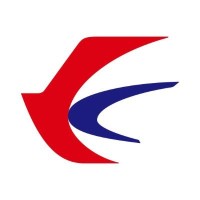
China Southern Airlines
China Southern Airlines Official Account



China Southern Airlines Official Account

As one of the three major air carriers in China, headquartered in Shanghai, China Eastern Airlines operates 111 domestic and overseas branches across the globe. Flying a fleet of 730 aircraft which is one of the youngest fleets in major airlines worldwide. Moreover, it boasts the largest-scale in-flight Wi-Fi wide-bodied fleet with leading commercial and technical models in China. The annual passenger turnover of CEA exceeds more than 130 million, ranking top 10 among global airlines As an official member of SkyTeam, China Eastern has extended its flight network from Shanghai to 1036 cities in 170 countries via close cooperation with alliance members. Frequent Flyer of Eastern Miles are privileged with 790 lounges worldwide within all 19 SkyTeam member airlines. China Eastern serves non-stop flights from Los Angeles, New York, San Francisco, Chicago, Vancouver and Toronto to Shanghai, along with the comprehensive flight network covering more than 110 cities in China, connecting Asia, Europe and Oceania. Focusing on providing high-quality aviation transport service, China Eastern has won awards at home and abroad in the fields of operation quality, service experience, CSR, etc., including the Flight Safety Diamond Award by CAAC - the highest flight safety award in China, nine consecutive years of Top 50 Most Valuable Chinese Brands by the Brand Rating Agency WPP, four consecutive years’ nomination of “Global Top 500 Most Valuable Brand” by UK's Brand Rating Agency - Brand Finance, two consecutive years of Top 20 Chinese Enterprises Global Image Award-ranking first in the transportation industry. Additionally, China Eastern got the A rating in the latest ESG (Environmental, Social and Governance) criteria and listed the first place along with other five airlines, according to global index compiler MSCI.
Security & Compliance Standards Overview












No incidents recorded for China Southern Airlines in 2025.
No incidents recorded for China Eastern Airlines, North America in 2025.
China Southern Airlines cyber incidents detection timeline including parent company and subsidiaries
China Eastern Airlines, North America cyber incidents detection timeline including parent company and subsidiaries
Last 3 Security & Risk Events by Company
Angular is a development platform for building mobile and desktop web applications using TypeScript/JavaScript and other languages. Prior to versions 19.2.16, 20.3.14, and 21.0.1, there is a XSRF token leakage via protocol-relative URLs in angular HTTP clients. The vulnerability is a Credential Leak by App Logic that leads to the unauthorized disclosure of the Cross-Site Request Forgery (XSRF) token to an attacker-controlled domain. Angular's HttpClient has a built-in XSRF protection mechanism that works by checking if a request URL starts with a protocol (http:// or https://) to determine if it is cross-origin. If the URL starts with protocol-relative URL (//), it is incorrectly treated as a same-origin request, and the XSRF token is automatically added to the X-XSRF-TOKEN header. This issue has been patched in versions 19.2.16, 20.3.14, and 21.0.1. A workaround for this issue involves avoiding using protocol-relative URLs (URLs starting with //) in HttpClient requests. All backend communication URLs should be hardcoded as relative paths (starting with a single /) or fully qualified, trusted absolute URLs.
Forge (also called `node-forge`) is a native implementation of Transport Layer Security in JavaScript. An Uncontrolled Recursion vulnerability in node-forge versions 1.3.1 and below enables remote, unauthenticated attackers to craft deep ASN.1 structures that trigger unbounded recursive parsing. This leads to a Denial-of-Service (DoS) via stack exhaustion when parsing untrusted DER inputs. This issue has been patched in version 1.3.2.
Forge (also called `node-forge`) is a native implementation of Transport Layer Security in JavaScript. An Integer Overflow vulnerability in node-forge versions 1.3.1 and below enables remote, unauthenticated attackers to craft ASN.1 structures containing OIDs with oversized arcs. These arcs may be decoded as smaller, trusted OIDs due to 32-bit bitwise truncation, enabling the bypass of downstream OID-based security decisions. This issue has been patched in version 1.3.2.
Suricata is a network IDS, IPS and NSM engine developed by the OISF (Open Information Security Foundation) and the Suricata community. Prior to versions 7.0.13 and 8.0.2, working with large buffers in Lua scripts can lead to a stack overflow. Users of Lua rules and output scripts may be affected when working with large buffers. This includes a rule passing a large buffer to a Lua script. This issue has been patched in versions 7.0.13 and 8.0.2. A workaround for this issue involves disabling Lua rules and output scripts, or making sure limits, such as stream.depth.reassembly and HTTP response body limits (response-body-limit), are set to less than half the stack size.
Suricata is a network IDS, IPS and NSM engine developed by the OISF (Open Information Security Foundation) and the Suricata community. In versions from 8.0.0 to before 8.0.2, a NULL dereference can occur when the entropy keyword is used in conjunction with base64_data. This issue has been patched in version 8.0.2. A workaround involves disabling rules that use entropy in conjunction with base64_data.